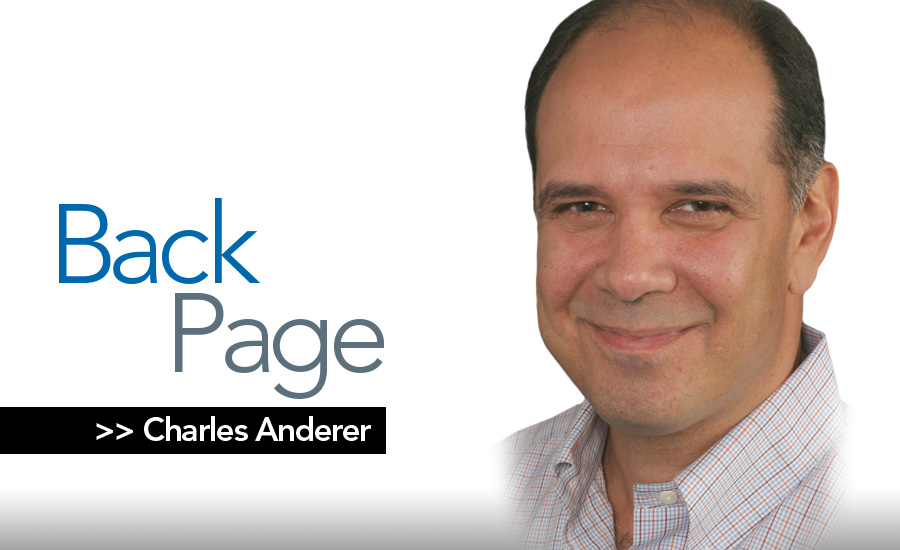So the calendar tells us we’re in a new decade. No more aughts or teens, finally, a decade with a proper name that we can use from the start.
We don’t know if these will ever be the roaring 2020s, but we do know not much has roared economically for the vast majority of Americans for decades. Study after study shows real incomes have moved mostly sideways for many years, while the cost of necessities such as housing, health care and education have gone up. Then there are the effects of corporate consolidation.
“Many Americans have a choice between only two internet providers,” writes Dave Leonhardt in the New York Times. “The airline industry is dominated by four large carriers. Amazon, Apple, Facebook and Google are growing ever larger. One or two hospital systems control many local markets. Home Depot and Lowe’s have displaced local hardware stores. Regional pharmacy chains like Eckerd and Happy Harry’s have been swallowed by national giants.”
If you’re American and you have any European friends, ask what their monthly cellphone and Internet bill is and you’ll see what this means. I have family in Germany and I spend about 2.5 times a month more for cable, Internet and cellphone than they do. Maybe it has something to do with choice—the effects of consolidation in the U.S. add up to $5,000 per household in annual overcharges and wage stagnation, according to NYU economist Thomas Philippon.
So what does all that have to do with gaming? The signs are, increasingly, a lot.
“These are dangerous times we’re living in right now; the customer is kind of at a point where they’re beginning to revolt against what I call nickel-and-diming or gouging,” said Anthony Curtis, publisher, Huntington Press and the Las Vegas Advisor, at Casino Journal’s Cutting Edge Table Games Conference last November. “I spoke at a player conference at the end of 2018, and the first thing I said was, ‘Resort fees s*ck.’ And the place erupted in applause. And then I said, ‘Paid parking s*cks harder,’ Boom! The applause was even louder. The customer dislikes anything they feel is a gouging attempt. When six-to-five blackjack was introduced, there was a sign outside a Strip casino saying, ‘now offering six-to-five blackjack by popular demand.’ Let’s see, this is 1.36 percent better for the casino. I don’t think there’s any demand here except from the executive offices.”
Curtis’ newsletter is a conduit between the customers and the casinos, and he consistently hears from customers who hate things like resort fees; paid parking; shrinking comps; and games that give them lesser returns.
“You might say, ‘well, you know, a lot of people don’t know the difference,’ but that’s changing,” he said. “People are beginning to know the difference because there are books out there, websites and people who are telling customers that six-to-five blackjack is not good for them.”
One of Curtis’s newsletter contributors and a popular gambling writer in her own right is Jean Scott, popularly known as the Queen of Comps, author of many Frugal Gambler books and the Advisor’s Frugal Vegas blog.
I felt compelled to write this column when I read of Scott’s retirement from the business last month in an article published by CDC Gaming Reports, where she backed up everything Curtis said and then some. Here are some excerpts from the story by CDC’s Mark Gruetze:
Now, as she prepares to leave Las Vegas for her second retirement, she directs a lesson to casino operators: Many are squeezing players so much that gambling ‘just isn’t fun anymore.’
“The people who are running the casinos don’t seem to understand the gambler.” She cites rule changes that increase the house advantage on games plus widespread tightening of comps, reduced free play, and restrictions on what hosts can offer players.
“It’s so cold,” she says. “It’s hitting everybody.”
“In the last two years, it’s become just a catastrophe,” Scott says. “It seems like every other day there’s a new cutback.”
“There are advantage plays, but the advantage is so razor thin I figure I won’t live long enough (to get it).”
“It just isn’t fun anymore for us.”
Curtis said the opportunity for casinos in this environment is to create new forms of value or swim against the tide of cost creep and become known for it. “I think there’s a chance to be heroic here,” he said. “I think places who offer three-to-two blackjack have an opportunity to be seen as heroic to their customers and drive traffic, making up for what you’re taking on the extra margin and lower levels of play at six-to-five.”
